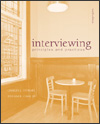 |
1 |  | 
A key management assumption is that teams empower workers. |
 |
 |  | A) | TRUE |
 |  | B) | FALSE |
 |
2 |  | 
In a performance review, state results in terms of ranges rather than absolutes. |
 |
 |  | A) | TRUE |
 |  | B) | FALSE |
 |
3 |  | 
A panel interview approach produces a reduced perception of favoritism. |
 |
 |  | A) | TRUE |
 |  | B) | FALSE |
 |
4 |  | 
A tight rater in a performance review believes that most employees can perform at the necessary standards. |
 |
 |  | A) | TRUE |
 |  | B) | FALSE |
 |
5 |  | 
In "at-will" states, performance problem interviews may take place at the discretion of the supervisor as long as termination is not an option. |
 |
 |  | A) | TRUE |
 |  | B) | FALSE |
 |
6 |  | 
The balanced scorecard approach to strategic management includes all except the following: |
 |
 |  | A) | recognition and celebration. |
 |  | B) | planning and target setting. |
 |  | C) | clarifying and translating the vision and strategy. |
 |  | D) | strategic feedback and learning. |
 |  | E) | communicating and linking. |
 |
7 |  | 
Employees prefer a supportive climate that includes |
 |
 |  | A) | supervisor input. |
 |  | B) | up-to-date job descriptions. |
 |  | C) | mutual trust. |
 |  | D) | a detailed evaluation process. |
 |  | E) | annual feedback. |
 |
8 |  | 
The MBO model classifies all work in terms of four elements: |
 |
 |  | A) | inputs, coaching, performance, and feedback. |
 |  | B) | activities, competencies, outputs, and feedback. |
 |  | C) | feedback, data, performance, and challenges. |
 |  | D) | behaviors, attitudes, beliefs, and corporate values. |
 |  | E) | inputs, activities, outputs, and feedback. |
 |
9 |  | 
The universal performance interviewing model begins with which one of the following questions? |
 |
 |  | A) | Does the individual have the knowledge to perform as needed? |
 |  | B) | What is not being done that should be? |
 |  | C) | Does the person want to do the work? |
 |  | D) | What expectations are being met at what standard? |
 |  | E) | What is being done that should not be? |
 |
10 |  | 
Shula and Blanchard offer a set of principles that spells out coach. It includes all of the following except: |
 |
 |  | A) | conviction driven. |
 |  | B) | over-learning. |
 |  | C) | action ready. |
 |  | D) | consistency of leadership. |
 |  | E) | honesty based. |
 |
11 |  | 
A management trend sees the supervisor as a rather than an evaluator or disciplinarian. |
 |
 |
 |
12 |  | 
is essential in all performance reviews. |
 |
 |
 |
13 |  | 
Once the feedback session is completed, the interviewer/facilitator and the interviewee must formulate a . |
 |
 |
 |
14 |  | 
The interviewer should establish rapport by supporting the interviewee and engaging in a few minutes of . |
 |
 |
 |
15 |  | 
Enhance and cooperation to avoid conflict in performance interviews. |
 |
 |



 2003 McGraw-Hill Higher Education
2003 McGraw-Hill Higher Education